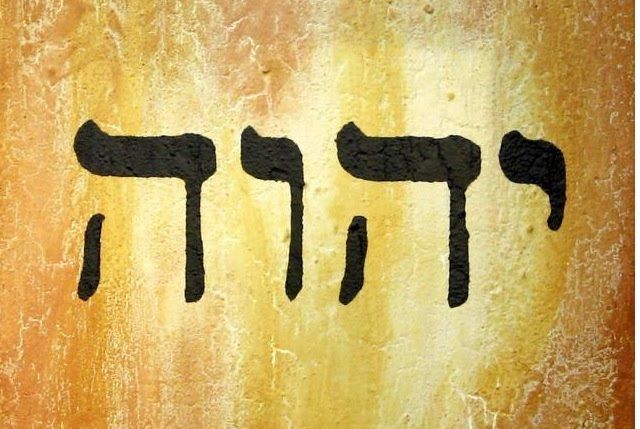
To listen to this reflection as a podcast, click here.
Every day during this season of Lent we’re looking at one of the “3:16” verses of the Bible, spotlighting some of the significant theological statements that happen to fall on the 16th verse of the third chapter of a number of Old and New Testament books.
[God said to Moses], “Go, assemble the elders of Israel and say to them, ‘The Lord, the God of your fathers—the God of Abraham, Isaac and Jacob—appeared to me and said: I have watched over you and have seen what has been done to you in Egypt” (Exodus 3:16)
Reading the third chapter of Exodus, where God speaks from within a burning bush, is like listening to a vocational recruiter trying to convince a reluctant candidate to undertake a mind-boggling job assignment.
God is the recruiter. An 80-year-old fugitive named Moses is the fearful, disillusioned candidate. Mission Impossible is striding into the court of the Egyptian Pharaoh (the most powerful potentate in the ancient Near East) without so much as a pocketknife or a pea shooter and insisting, just like that, that he liberate his entire Hebrew slave labor force.
As we might expect, Moses has a few questions. God encourages him to fire away.
Moses says, “Who in the world am I that I should be the one chosen to do this?” God replies, “I will be with you” (Exodus 3:11-12). In other words, it doesn’t matter who you are, Moses. Your strengths and weaknesses are not the point. All that matters is that you trust in my strength.
So Moses boldly counters, “And who exactly are you, Lord?” Or as he puts it in Exodus 3:13, “When the people ask, ‘What is your name?’ what should I tell them?”
God’s answer is one of the most mysterious sentences in all of human literature: “I AM WHO I AM. This is what you are to say to the Israelites. I AM has sent me to you” (3:14). What exactly is God trying to say here?
“I AM WHO I AM” (which is typically capitalized in English translations) stands for just four Hebrew consonants, read from right to left in the image above: YHWH. These four letters represent God’s personal name. YHWH appears 6,807 times in the Old Testament and is usually rendered “LORD.” This is how God identifies himself in this “3:16” verse – followed by his association with the first three generations of the Hebrew patriarchs: Abraham, Isaac, and Jacob.
No one knows how God’s name should be pronounced. Vowels were not included in the original Scripture texts. Centuries before the time of Jesus, the majority of the Jewish people – concerned about breaking the commandment not to take God’s name in vain – stopped speaking the four letters altogether.
YHWH has almost literally become The Name That Must Not Be Spoken. Members of the Jewish community who read Hebrew aloud generally substitute Ha Shema (“The Name”) or Adonai (“Lord”) whenever YHWH appears.
Our best guess is that God’s personal name is to be rendered as Yahweh.
What does it signify?
Its underlying meaning remains a mystery, even after 3,000 years of rabbinical reflection. Some believe it should be translated, “I am who am.” In other words, God is God and we are not. He is the ultimate Being in the cosmos. Others prefer, “I am who I am.” That is, “Moses, who I am is none of your business.” This would be an expression of God’s impenetrable identity. Still other scholars believe Yahweh means, “I will be there with you,” or “I am all you need.”
The simplest and perhaps most compelling insight is that God may have wanted his people to think about him every time they took a breath.
Try it. Breathe in: Yah. Breathe out: Weh. “Yah-weh.”
The consonants in YHWH are the only ones in Hebrew in which the speaker doesn’t use the tongue or close the lips. All the other consonants – such as P, K, T, B – explode off the lips or teeth, or spring from the back of the throat. But Yahweh can be said effortlessly. It’s as easy as breathing in and breathing out.
God’s name, in fact, may represent a constant reminder that he is the One who keeps us breathing.
Farther Richard Rohr has made an intriguing suggestion. The Franciscan priest notes that the first word spoken by every human being, the world over, is the sacred name of God. The first breath of every newborn baby is God’s personal identity. And just in case you’re anxious about what you should pray just before you die, don’t worry. With your last breath you will speak God’s name.
Rohr goes on to say that there isn’t a Catholic way of breathing or a Protestant way or an English way or an American way.
There’s just breathing.
You’ve done it your whole life – on average, about 20,000 times a day, whether awake or asleep.
But from time to time, as we catch our breath going from one moment to the next one, we can choose to stop and remember:
Yahweh. God is God.
He is the same God who called Moses out of the burning bush. And he has promised to go with you, too, into whatever seemingly impossible mission you are currently facing.
And the best news of all? He is closer to you than your next breath.
